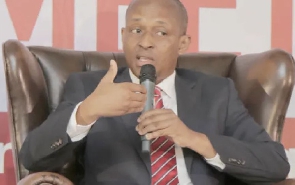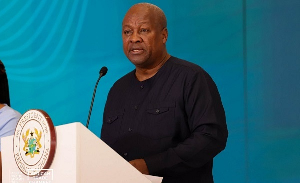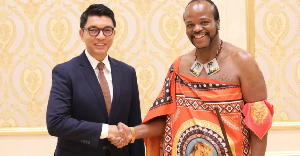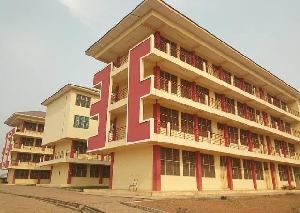Auditing firm, PricewaterhouseCoopers (PwC) has asked government to put in place measures to insulate the Coronavirus Alleviation and Revitalization of Enterprises Support (CARES) programme from any political risk and transcend regimes since it has the potential to place the economy on a sustainable growth path.
The Finance Minister announced in Parliament last week that the CARES programme, a GH¢100 billion economic turnaround programme, would be an ambitious three-and-a-half-year plan geared at resuscitating the economy from the impact of the outbreak of the Coronavirus pandemic with aggressive focus on boosting food security, expanding the procurement of local goods and services and introducing unemployment insurance for jobs lost due to the pandemic.
But with 2020 being an election year, the auditing firm fears a change in government could derail any progress made under the programme but the Finance Ministry noted that it would be a tall order to insulating the programme from politics or making it binding on government irrespective of the political party in power.
“We agree with the government on our need – as a country – to leverage on the scourge of COVID-19 as an opportunity to redirect our course to a fundamental restructuring of our econom. CARES comes across as an elaborate, ambitious programme and execution, execution, execution most likely will be a key driver of success.
It would be comforting if steps are taken to insulate the programme, in substance, from any political risk to ensure its full and disciplined execution irrespective of who is in government,” PwC stated in its highlights of the 2020 Mid-Year Budget Review and Supplementary Estimates presented by the Minister of Finance, Ken Ofori Atta, last week.
During the virtual workshop, organized by for memebrs of Institute of Financial and Economic Journalists (IFEJ) and Parliamentary Press Corps, the auditing firm noted that such a move would guarantee the future of the programme and economic growth of Ghana and prosperity of its citizens.
But the Director, Economic Research and Forecasting Division (ERFD) at the Ministry of Finance, Dr. Alhassan Iddrisu, in reaction to a question on whether there could be a policy or process to bind the CARES programme on an any government that wins the upcoming election, he said, it would be a bit difficult.
He explained that the programme is subject to review and even lawmakers acknowledge that. “Even if the current government continues after the election, portions of the programme can be subject to review if need be. Therefore, a new government would have the opportunity to analyze and make decisions.”
For PwC, the pandemic has surely come with the opportunity to restructure the economy and empower local firms as has already been exhibited with the empowering of the local garment sector to go into the production of Personal Protective Equipment (PPE) and sanitisers. Therefore, a call upon them to support the government’s programme would depend on how well such conscious and deliberate policies enhance the fortunes of local businesses – a move the Finance Minister has assured will be done.
“The next few years will therefore require a concerted effort by both public and private sector operators to rebuild what has been lost in the short term. Businesses and individuals should continue to plan to tighten their belts, re-strategize and adjust in order to survive and hopefully thrive, not withstanding the pandemic.
It is not all bad news, in that the rebuilding efforts offers another opportunity for economic policy makers, the managers of the economy, businesses and individuals to introduce new thinking and innovation into the rebuilding process such that our economy and business emerge from this pandemic in a more resilient and diversified manner.
Already, we have seen local manufacturers rise to the challenge by switching part of production capacity to manufacture sorely needed items such as Personal Protective Equipment (PPE) and sanitizers. This is a clear and encouraging demonstration of the innovation and capacity that exist locally and what is perhaps one of the positive outcomes of the pandemic,” Country Senior Partner at PwC Ghana, Vish Ashiagbor, said.
Business News of Tuesday, 28 July 2020
Source: thebftonline.com













